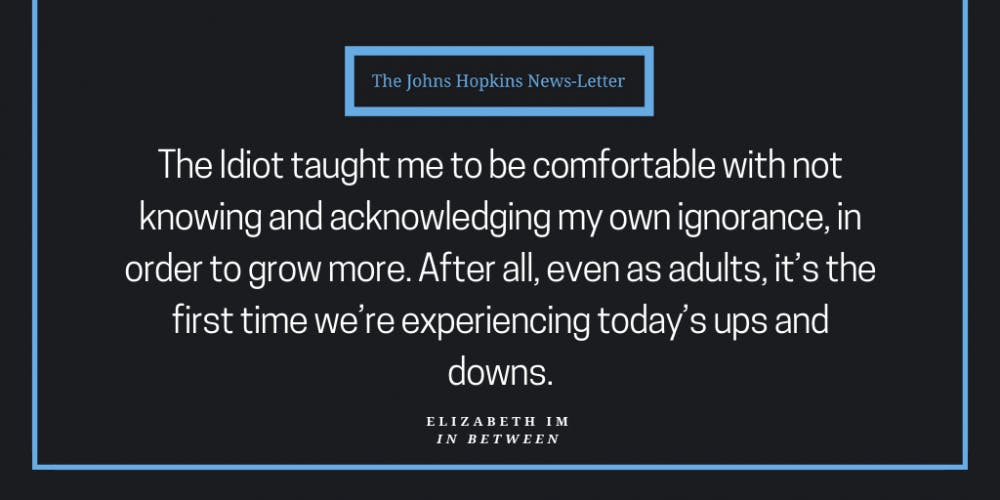
Last summer, I bought The Idiot by Elif Batuman — partially because of its interesting title and partially because it had a buy-one-get-one-half-off sticker. It was collecting dust on my shelf until a month into the fall term. There couldn’t have been a better time to start reading it, given that it’s a book about the narrator Selin’s experience as a freshman.
On one page, Selin’s professor comments that Honoré de Balzac, a French novelist, “didn’t care for or about children. [They] weren’t important at all. His attitude toward them was dismissive, even contemptuous...”
Hearing this, Selin concludes that Balzac’s attitude toward her would be the same, “It wasn’t that I was a child exactly, but I didn’t really have a history as anything else.”
Selin is an adult, but she has just become one. What even makes one an “adult”? A number? What proves it? I thought if I reached a certain age, I’d be a grown-up. Like crossing over a border. However, I realize now that there is no magical moment.
On Tuesdays and Thursdays, I tutor a fourth grade girl who goes to a local elementary school. On the first day I was excited, and I expected that she would be too. Little did I remember that a fourth grader who just had six hours of school would be not enthusiastic about reading The Magic Tree House.
After a while she got upset and hit my head with the book. I was shocked. I tried to communicate that her action was not okay — that I was hurt. Still, my tutee refused to listen or apologize.
I was at a loss. What could I do? To my surprise, as I tried to figure out a way to make the situation right, as an adult would, I felt tears fall down my cheeks.
That’s right. An adult, a 19 year old, cried because of a fourth grader. At that moment, I remembered how I used to judge adults when they were “immature.” I had assumed they were automatically wiser. Yet I myself felt like a fourth grader as I faced my tutee’s unapologetic expression.
Selin is smart, but she is inexperienced. Often times, she finds herself feeling “idiotic” because she doesn’t know yet how to respond to the situations she’s facing, from feeling frustrated in class because of her professor’s lack of an effort to explain, to a confusing relationship that is harder to decipher than any exam. When it comes to expressing herself, she is clumsy and unaware of what goes on outside her culture.
Throughout the book, she learns to question what she once accepted so faithfully. When she goes to Hungary over the summer, she interacts with people outside her culture, and she realizes that there is much more in the world outside of what she knows.
In the midst of finding my place in a new environment and adjusting to the title of an “adult,” Selin’s narration validated my confusion. Batuman paints human mistakes as natural and shows how key a willingness to learn can be. The Idiot taught me to be comfortable with not knowing and acknowledging my own ignorance, in order to grow more. After all, even as adults, it’s the first time we’re experiencing today’s ups and downs.





